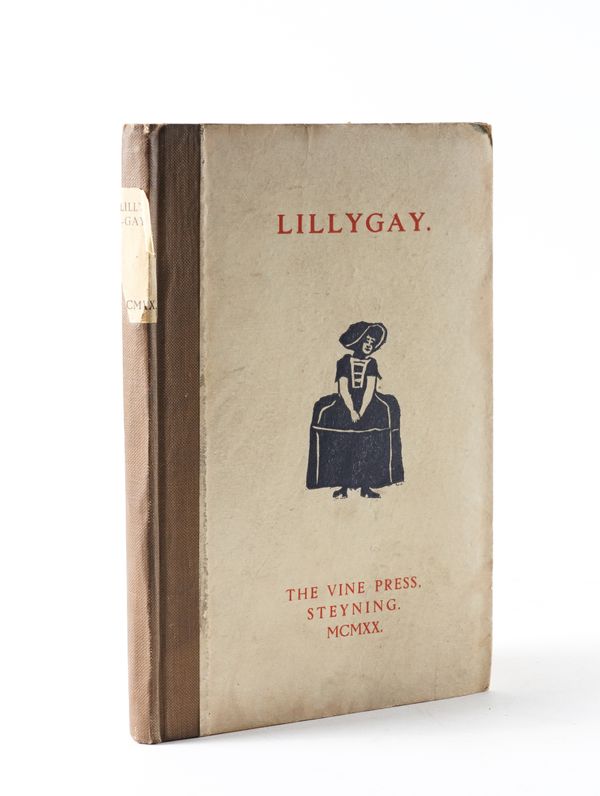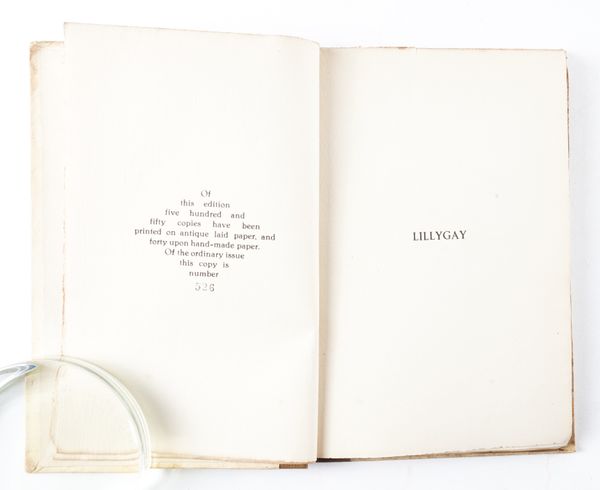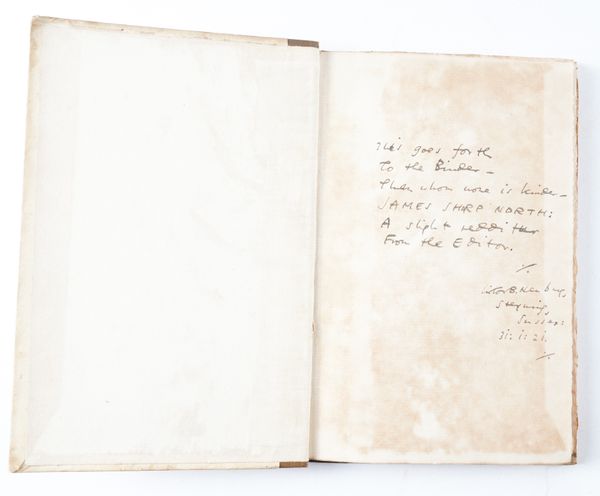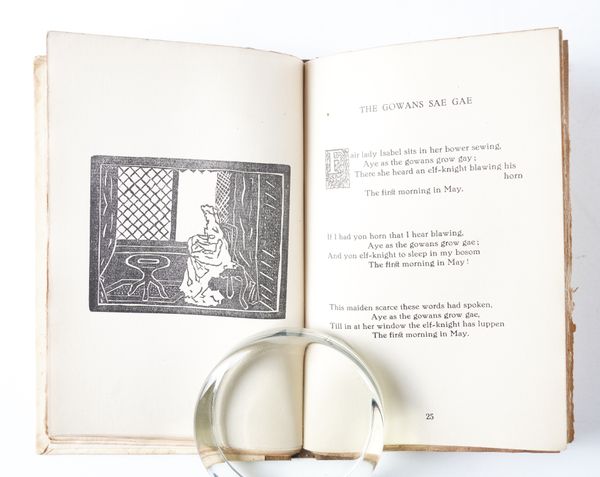THE VINE PRESS, STEYNING - Lilligay, Steyning, 1920, 8vo, woodcut illustrations, original boards. FIRST EDITION, LIMITED TO 590 COPIES, THIS NUMBER 526 OF 550 "ORDINARY COPIES ON ANTIQUE LAID PAPER". EDITOR'S PRESENTATION COPY INSCRIBED TO THE BINDER.
| Estimate: | £200 - £300 |
| Hammer price: | £100 |
THE VINE PRESS, STEYNING - Lilligay: An Anthology of Anonymous Poems. Steyning: The Vine Press, 1920. 8vo (96 x 128mm). Half title, title printed in red and black with woodcut illustration, full-page woodcut illustrations by Eric and Percy West, the final poem "Colophon" printed in red, the actual colophon printed in black, the title page unopened at the upper edge, resulting in the awkward photograph. Original brown cloth-backed pictorial paper boards by James Sharp North printed in red and black, printed spine label, uncut (the corner of the spine label torn away with the loss of one letter, some staining to the free endpapers). FIRST EDITION, LIMITED TO 590 COPIES, THIS NUMBER 526 OF 550 "ORDINARY COPIES ON ANTIQUE LAID PAPER". EDITOR'S PRESENTATION COPY TO THE BINDER, the front free endpaper inscribed, "This goes forth to the Binder - Than whom none is kinder - James Sharp North: a slight [illegible word or words] From the Editor. Victor B. Neuburg, Steyning, Sussex, 3i:i:2i." "The Vine Press at Steyning has produced interesting work, typical of this free and enjoyable period, and its first book, Lillygay, issued in 1920, expresses the character of what followed. It is an anthology of anonymous poems. The woodcuts by Percy West are cheerful and chapbook in style, like Tuer's books from the late nineteenth century or Lovat Fraser's more recently, or Jack Yeats in the Cuala Broadhseets ... The type is nothing to write home about but the book is a success ..." (Franklin, The Private Presses (1969)). Victor Benjamin Neuburg (1883-1940) was a poet, writer, theosophist and occultist, friend and sometime partner of Aleister Crowley. Having served in the First World War, he moved to Steyning in West Sussex where he founded The Vine Press. The present collection "Lilligay" was its first publication. Although the title page describes the poems contained in it as "anonymous", many were largely Neuburg's own work, or his free adaptations of traditional ballads. The composer Philip Heseltine, better known under his pseudonym Peter Warlock, set five of them to music.



